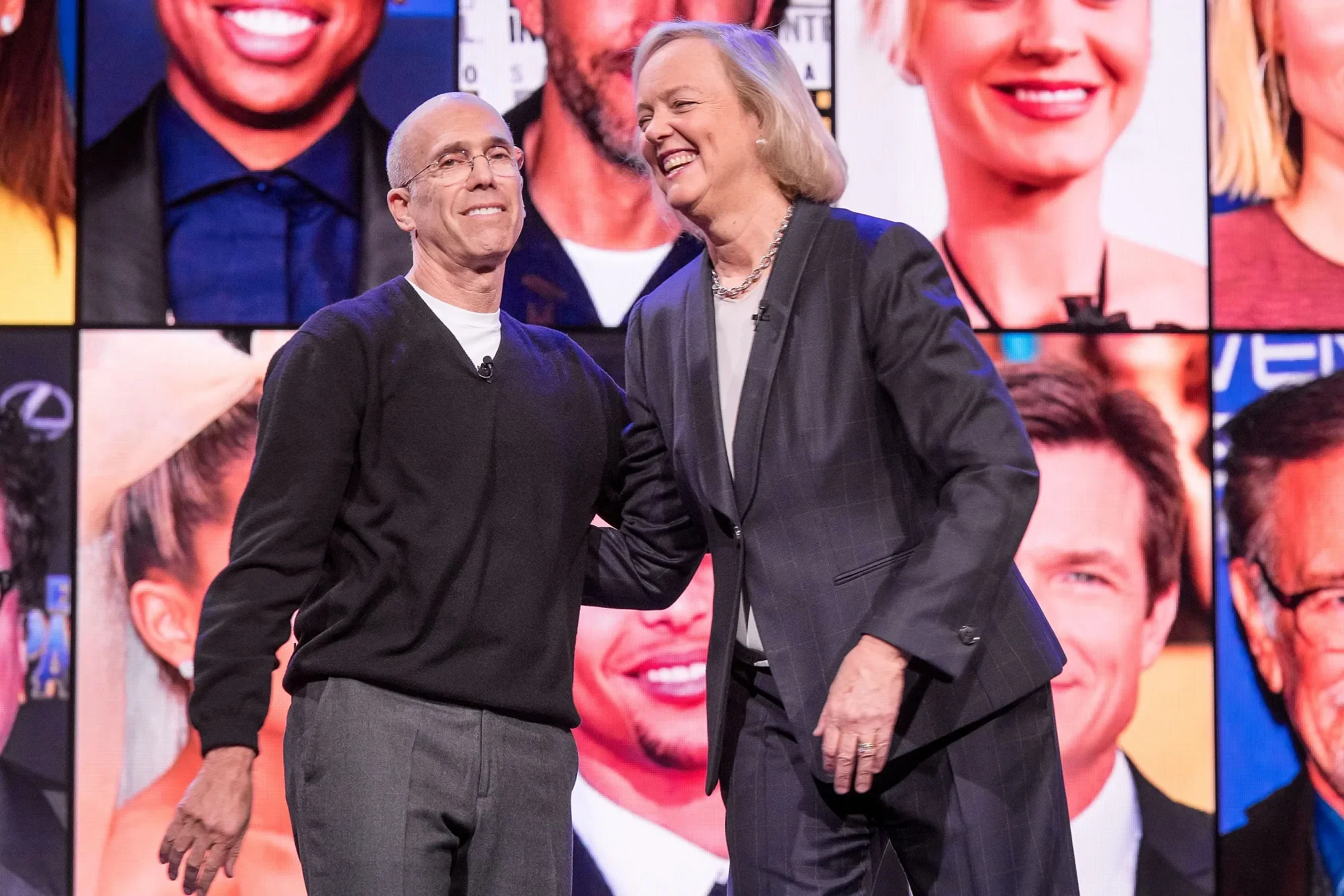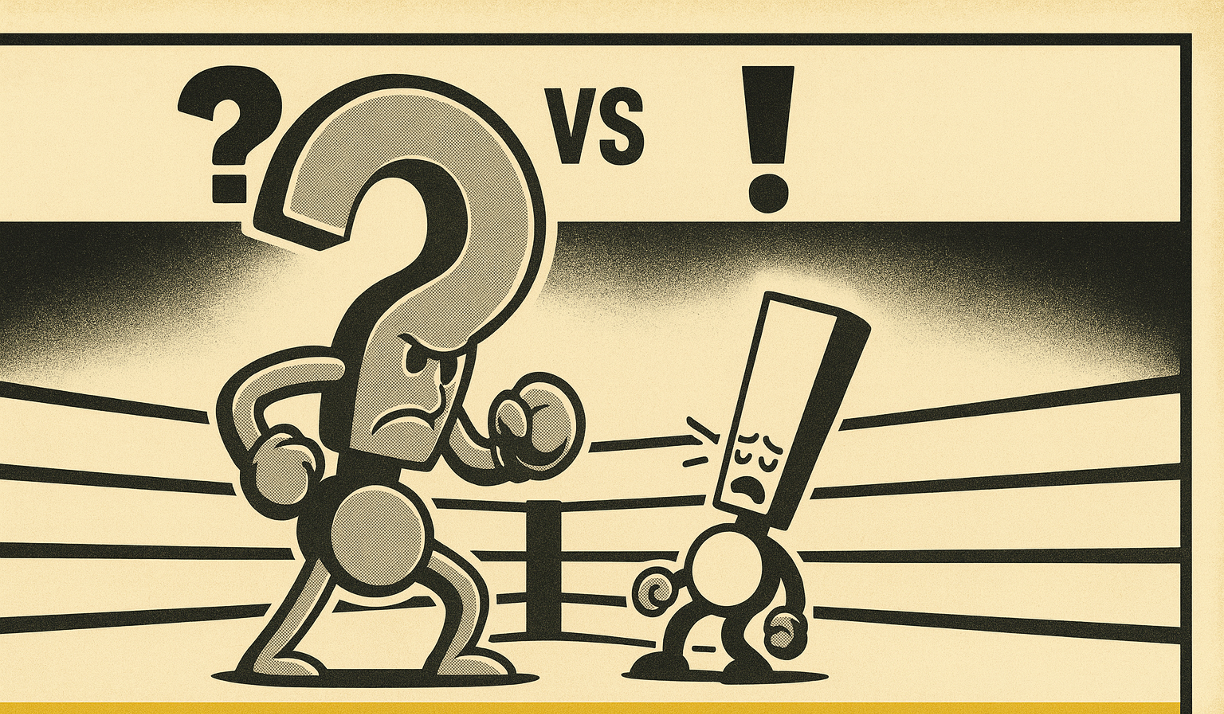Welcome to Musings—
A space where I cut through the noise and get to the heart of effective leadership and strategy execution. Here, I share hard-earned insights, practical frameworks, and candid reflections to help you navigate the complexities of leading teams and driving change.
Each post is designed to be a quick, impactful read—something you can digest between meetings and apply immediately. Whether you're refining your leadership approach, tackling execution challenges, or seeking to foster a more cohesive team, you'll find valuable takeaways here.
Dive in, reflect, and let's grow together.
Beware the Green Mask
If your team is “on track” every month, you’re being lied to.
My friend Mike Africa calls this green masking. It’s the tendency for everything to get reported as “green” (i.e. all is well) until right before a deadline, when the real problems finally surface and you end up in last-minute chaos.
That’s why I’m a big believer in Red Flag Sessions.
The Reorg Reflex That Breaks Execution
A new strategy gets announced, and within weeks someone is redrawing the org chart.
That reflex creates more execution problems than it solves.
The disruption that follows consumes the same attention and time you need to deliver results.
Changing structure changes how work flows through the company, whether you intend it to or not. People have to relearn who to go to, where decisions sit, and how things actually get done. During that adjustment period, execution almost always takes a hit.
Is Urgency Detouring Your Strategy?
Many leaders say they care about long-term direction. Then the week starts.
You’ve probably seen these happen:
A big customer asks for something special.
A key metric declines.
A senior executive raises a concern.
A competitor makes announces a big move.
And all of the sudden, the planned strategic work slides to the side while the immediate issue takes center stage. Run that pattern enough times and the organization learns what really matters…and it isn’t the strategy.
Strategy Sets Direction. Guiding Principles Make It Usable.
When smart people keep reaching different answers to the same decision, the strategy isn’t specific enough to run the business.
High-level strategy needs to stay high-level. That’s what makes it understandable and sustainable. It tells people where the company is headed and what matters most.
But it doesn’t help settle day-to-day judgment calls.
What Writing “The Strategy Trap” Taught Me
One thing I didn’t expect from writing The Strategy Trap is how much it would force me to question my own thinking and break down assumptions I didn’t even realize I was carrying.
I’ve been using a lot of the ideas in the book for years. They weren’t new to me. And I knew they worked. I trusted them. But writing is different. You can’t skip steps. You can’t rely on tone or context or “you know what I mean.”
You have to explain things cleanly enough that someone else can actually do something with them. You know, exactly like communicating a strategy to a team that has to act on it.
The Empire That Couldn’t Execute: All-Time Strategy Trap Fail #1
In 1775, British Empire was the mightiest force on earth.
Its navy ruled the seas. Its army was professional, disciplined, and well-equipped. Across the Atlantic stood a loose collection of farmers and merchants. No standing army. Little money. Fewer weapons.
From London’s perspective, the outcome seemed inevitable.
Yet six years later, Britain surrendered at Yorktown.
A Fair and Square Disaster: All-Time Strategy Trap Fail #2
In 2011, JCPenney brought in Ron Johnson, the retail star who had built Apple’s iconic stores. His mission was bold: stop playing the endless coupon game and replace it with “Fair and Square” everyday low pricing.
It was simple. It was elegant. It was revolutionary.
And it was a catastrophe.
When a Deadline Becomes the Strategy: All Time Strategy Trap Fail #3
October 1, 2013, was supposed to be a historic day.
Healthcare.gov would open its digital doors and allow millions of Americans to enroll in affordable health plans.
The policy was law. The demand was real. The deadline was immovable.
The site went live.
And it crashed almost immediately.
When Everyone Was Right, and the Company Still Lost: All-Time Strategy Trap Fail #4
In 2007, Nokia controlled more than 40 percent of the global mobile phone market. Their devices were everywhere. They were profitable, admired, and dominant.
But just six years later, Nokia sold its entire phone business to Microsoft for a fraction of its former value.
What makes Nokia’s collapse so painful is this: they saw the future coming.
The Unicorn That Lost Its Horn: All-Time Strategy Trap Fail #5
In early 2019, WeWork was one of the most talked-about companies in the world.
It was valued at $47 billion. Investors lined up for an IPO that was imminent. It felt unstoppable.
And then it all came crashing down.
Within months, confidence evaporated, the narrative unraveled, and the valuation collapsed with stunning speed.
The Fastest $2 Billion Failure in Entertainment History: All-Time Strategy Trap Fail #6
It launched with nearly $2 billion in funding. It was backed by some of the most powerful names in Hollywood and Silicon Valley.
And there’s a good chance you barely remember it.
That’s the first clue.
In just six months, the company burned through its capital and shut down, becoming the fastest $2 billion failure in entertainment history.
This is the story of Quibi.
The Luxury Festival That Delivered Cheese Sandwiches: All-Time Strategy Trap Fail #7
It was marketed as the ultimate luxury music experience. Supermodels on yachts. Private jets. Tickets selling for thousands—some packages over $200,000.
But when guests arrived, the reality was a nightmare. A rainstorm had soaked the site. The "luxury villas" were actually disaster relief tents, and the mattresses inside were piled up, soaking wet. The gourmet meals were cheese sandwiches in Styrofoam boxes.
When the Shortcut Becomes the Trap: All Time Strategy Trap Fail #8
In April 1846, the Donner and Reed families set out for California with one north star: arrive safely before winter.
A clear, simple goal—one that required steady progress and smart decisions along the way. But when they started falling behind schedule, they reached for a shortcut. And that’s when everything began to unravel.
When Target Missed the Target: All Time Strategy Trap Fail #9
In 2013, Target stormed into Canada with the confidence you’d expect from one of America’s most beloved retailers. They opened more than 100 stores in a single year.
Canadians were eager. Surveys showed 52% were excited about the launch.
But when the doors opened, the dream collapsed. Shelves were half-empty. Prices felt higher than promised. On opening day, some stores even hung signs out front that read: "We're open (mostly)."
The Car Nobody Wanted: All Time Strategy Trap Fail #10
For eighteen months, Ford built the suspense.
The Edsel would be revolutionary—the car of the future. Dealers clamored for allocation. Customers waited to see what Ford had been hiding.
Then, in September 1957, the curtain lifted.
Within three years, the Edsel was dead, leaving losses that totaled more than $2 billion in today’s dollars.
Less Room. Better Work.
When everything feels open and comfortable, progress slows. Urgency fades away. Teams stretch work instead of tightening it.
Constraints do the opposite. They create tension. They sharpen decisions. They force us to focus on what actually matters instead of spreading effort across everything that could matter.
If you want breakthroughs, don’t give people (or yourself) more space.
Say Less. Mean More.
The hardest part of communicating anything isn’t deciding what to say. It’s deciding what not to say.
Clear communication is a discipline. It means resisting the urge to add, even when adding feels helpful. It means stripping the message down to the parts that actually guide action and letting the rest go.
The Strategic Power of a Well-Chosen Metaphor
We humans aren’t good at taking in lots of completely new information. Metaphors lighten the load and speed up clarity. They pin new ideas to something people already understand so they can act on them faster.
The Illusion of Alignment
Alignment isn’t everyone nodding in agreement. You can’t determine alignment with a yes or no question. Alignment runs too deep for that.
True alignment is when everyone making the same decision when you’re not in the room.
When alignment isn’t real, the cracks show up fast.
Why “?” Beats “!”
An emphatic statement tells. A question invites.
And that small mark of punctuation often determines whether teams react or reflect.
Statements drive activity. Questions drive accountability.




















